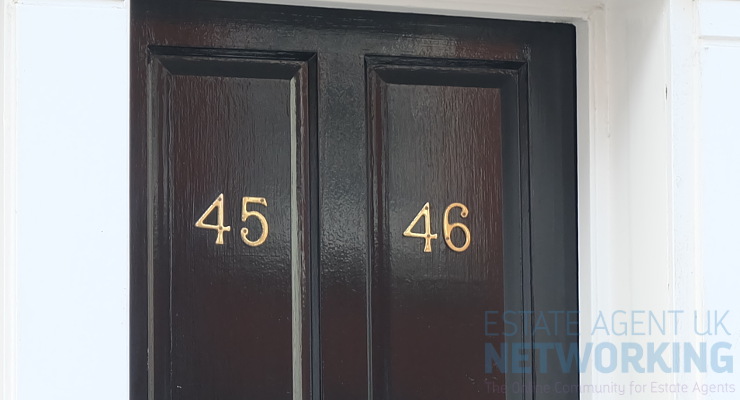Real Estate is Sexy. Real Estate Tech isn’t.
On twitter, the #realestate hashtag trends on a weekly basis.
Lots of talk of interiors, amazing properties you aspire to one day live in and stories of crazy tenants/landlords.
Advertising dollars from real estate agents are the last bastion of revenue for many print publishers. In the UK, the Evening Standard makes hay every Wednesday with its Homes and Property section; Archant group deliver ‘localised’ magazines funded almost exclusively by real estate related advertising, from agents to architects and interior decorations.
But this is also an industry beset by poor reputation and the perception of inconvenient service levels. Estate Agents are often the butt of many a joke, and won’t admit to their profession outside of their branded offices or cars.
This has led to a rise in start-ups keen to ‘solve the pain of finding a home’. Many, many start-ups. Online agents, new property portals and property management software make up the bulk of these offerings.
When considering a new business, the first thing (after the pain point) people look at is size of market. Real estate gets a big fat tick in that column. There’s a lot of money sloshing around and it’s being spent indiscriminately: there’s very little loyalty to agents, designers, builders or any other service providers. So lots of opportunity.
So we look at all these start-ups, dreaming of massive upside in solving the pains in real estate, only to discover it’s just so unsexy. And not unsexy is a profitable way, either.
The biggest UK real estate tech company, Rightmove, is the most dominant brand in UK real estate. Their business model: online classified listings, exclusively sourced from real estate agents that pay a monthly membership fee. UK real estate agency is worth £6 billion+. How much does Rightmove make? £140m. That’s 2% of just the agency market. Not exactly the kind of domination you see with the current coolest tech: mobile phones (Apple and Samsung, making billions upon billions).
It gets worse after Rightmove. Most real estate tech start-ups are run by people who are anti-agent. They want to put real estate agents out of business. They complain agents are under-worked and overpaid. It’s an entirely subjective point of view that bears no resemblance to the majority market phenomenon of people choosing to use an agent, and paying them the fees they ask for.
Is it that technology available to property owners isn’t as good as that available to book sellers? Or have they missed the point: Books are sold by businesses, property is sold by people.
And the volume of transactions is tiny. There are so few transactions on any given street, that it is near impossible to value by anything other than ‘feeling’. And the most trusted feeling comes from people on the ground who sell more often than people that don’t.
It’s certainly true that computer algorithms created to value property are little more than random number generators.
But there is hope. With the advent of mobile computers becoming ubiquitous, techies will inadvertently build simple and useful tools for people to use on the move. Once the shackles of desktop software are shed by real estate agents (who are now so wedded to their desks they won’t get up to greet you as you enter their office) we’ll see real service improvement. But the key is these better services will be offered by people, who are facilitated by technology.
Real Estate Tech will not be the kind of industry that ‘makes money while you sleep’. It’s not e-retail. It’s a people-led business. Finding a home is not a product, it is massively irrational and personal. People want to view in person, and are often swayed into a purchase by the beauty of an existing kitchen that they are likely to rip out anyway.
When real estate tech start-up founders study people, they’ll find the solutions to unlocking the potential of this very large market. There is one human behavioural truth in real estate: supply controls the market. And property owners, when selling, care about only one thing: the perception of getting the highest price in the fastest time possible. Are property owners feeling pain? Undoubtedly not. Prices keep going up, buyers are ever desperate and plentiful in number and governments will do anything they can to prop up property prices.
Until tech founders understand these behaviours and macro-economic trends, they’ll be disgruntled tenants and home buyers, trying in vain to put agents out of business. It’s amusing watching them fail.
But not as amusing as watching every real estate agent think they can build a property portal to kill Rightmove/Zillow (delete as appropriate) and then actually spending money to build portals that at best offer only incremental improvements (that few care about).
When there is a ‘tinder for real estate’, an ‘uber for property viewings’, or an ‘Amazon.com one-click home purchase’, then those businesses will make money. Not because they’re innovative, but because they are sexy. And sex sells.
A business, after all, needs to make money. Where is the money, and who controls it? Property owners are the wealthy, but they are undoubtedly controlled by real estate agents. If you want to make money in real estate tech, start with giving real estate agents tools to make more money. Or even better, get in the middle of their transaction, so they depend on you. Get agents on side, and you’ll quickly have them build up your business more virally than an unprotected Tinder fling.
But whatever you do, make it sexy. Life’s too short for yet another boring portal or online agency.









